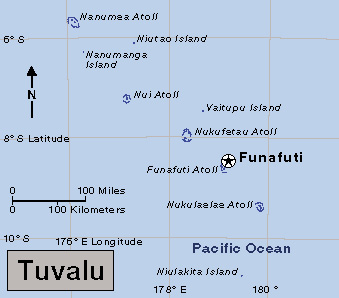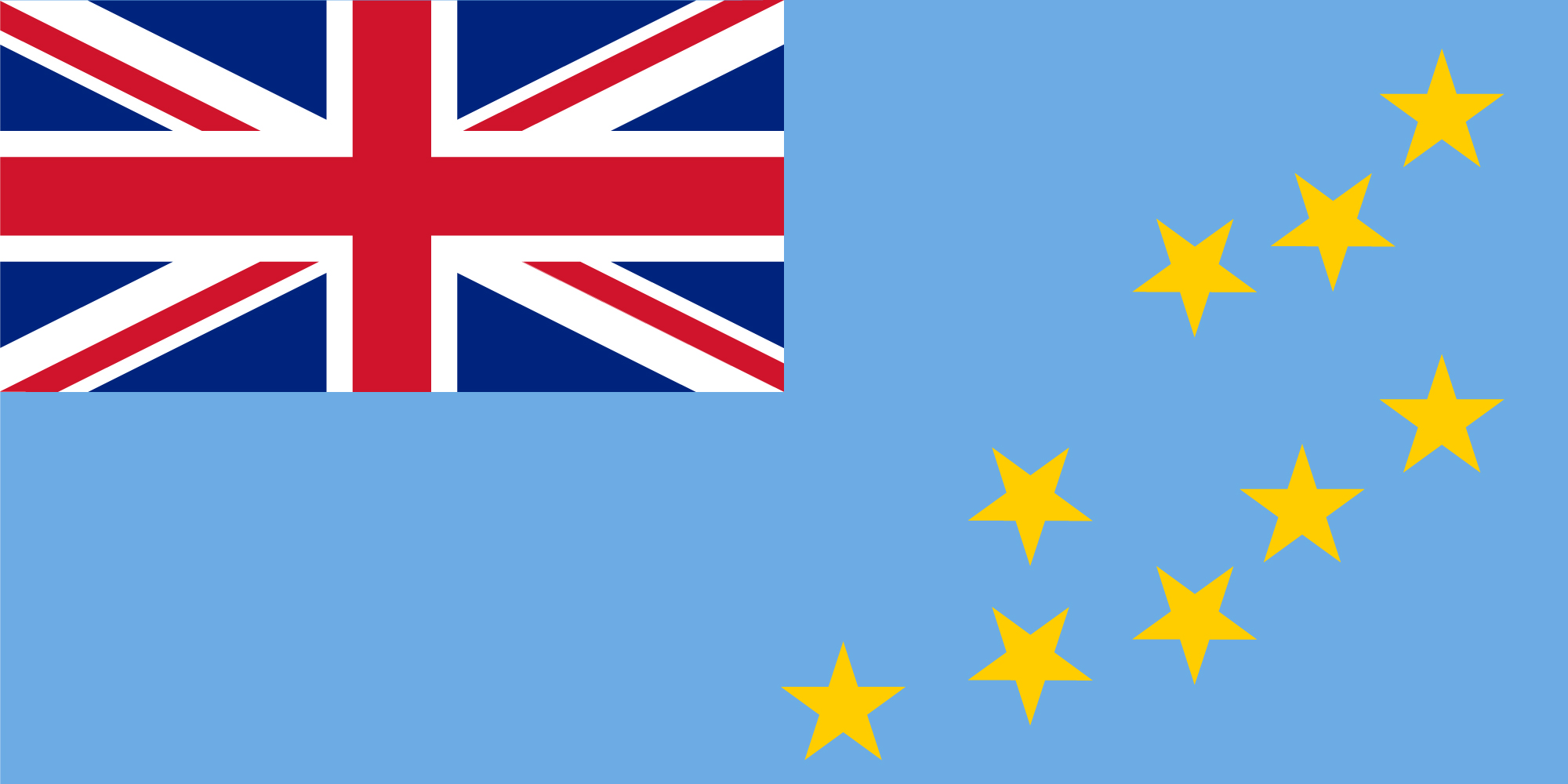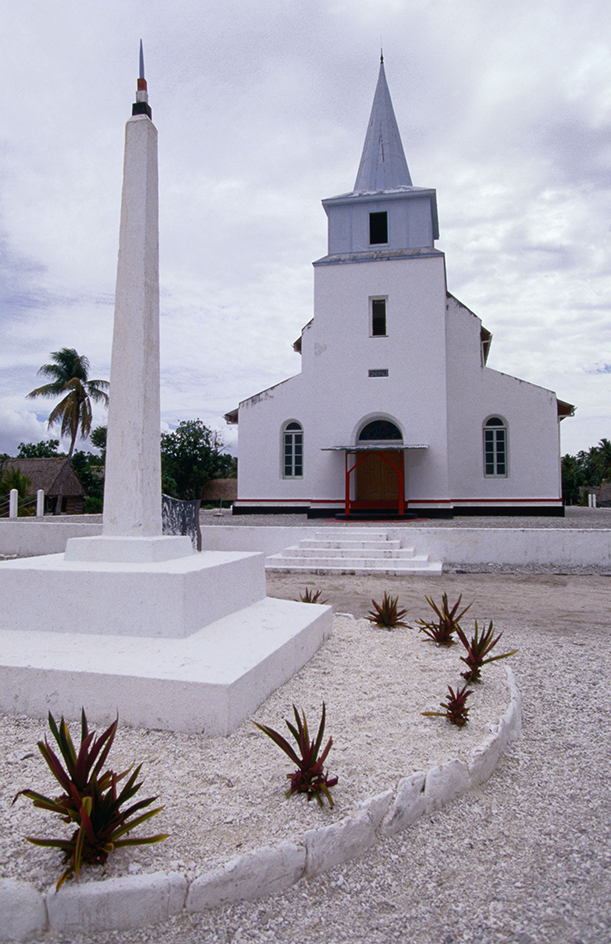Tuvalu << TOO vuh LOO or too VAH loo >> is a small island country in the South Pacific Ocean. It has a population of about 12,000 and a land area of 10 square miles (26 square kilometers). Among the nations of the world, only Vatican City has fewer people, and only Vatican City, Monaco, and Nauru are smaller in area. Tuvalu lies about 2,000 miles (3,200 kilometers) northeast of Australia. It consists of nine islands in a chain that extends about 360 miles (580 kilometers). People live on eight of the islands. Tuvalu means eight standing together.

Tuvalu, formerly called the Ellice Islands, was ruled by the United Kingdom from the 1890’s to 1978. It became independent in 1978. The capital of Tuvalu is an islet called Funafuti. This islet is part of an atoll (ring-shaped coral reef) that is also called Funafuti. The country’s national anthem is “Tuvalu mo te Atua” (“Tuvalu for God”). Its unit of money is the Australian dollar.
Government.
Tuvalu is a member of the Commonwealth of Nations. A prime minister, chosen by a parliament elected by the people, heads the government. Local governments include seven island councils and the Town Council at Funafuti. The island councils have six elected members. Communities help control the government through gatherings in communal meeting houses called maneapa. Island courts handle most trials. The High Court of Tuvalu hears appeals.

People.
Most of the Tuvaluans are Polynesians. Most live in villages built around a church and a meeting house. Tuvaluan houses have raised foundations, open sides, and thatched roofs. However, houses made of cement blocks and iron roofing are becoming more common. The main foods of the people are bananas, coconuts, fish, and taro, a tropical plant with one or more edible underground stems called tubers. The islanders also raise pigs and chickens, which they eat at feasts. They usually wear light, bright-colored cotton clothing.
The people speak the Tuvaluan language, and many also know English. Both languages are used in official government business. Each of the eight inhabited islands has at least one elementary school supported by the government. There are only two secondary schools in Tuvalu. A few Tuvaluans attend the University of the South Pacific in Fiji, an island country to the south.
Land and climate.
The nine islands of Tuvalu are, from north to south, Nanumea, Niutao, Nanumanga, Nui, Vaitupu, Nukufetau, Funafuti, Nukulaelae, and Niulakita. Niulakita is uninhabited. Most of the islands are atolls that surround lagoons. The principal trees of Tuvalu are coconut palms and pandanus palms.

Tuvalu has a tropical climate, with daytime temperatures of about 80 °F (27 °C). The southern islands receive about 140 inches (356 centimeters) of rain a year. The northern islands are drier.
Economy.
Tuvalu is one of the least developed countries. It has poor soil, few natural resources, almost no manufacturing, and no mining. The country’s economy is largely based on subsistence farming and fishing. Coconuts are the leading crop. The islanders use the coconuts to produce copra (dried coconut meat), one of their chief exports. Tuna is the leading fishing catch. Fees charged to foreign vessels fishing for tuna in the waters around Tuvalu are another important source of income. The country also receives income from a trust fund established in 1987 by Australia, New Zealand, and the United Kingdom. Many young islanders work on ocean ships because of a lack of employment opportunities at home.
History.
The first inhabitants of Tuvalu probably came from the Samoa Islands hundreds of years ago. In 1568, Alvaro de Mendana, a Spanish explorer, became the first European to see part of Tuvalu. But the islands remained largely unknown to Europeans until the early 1800’s. Europeans called them the Ellice Islands. The United Kingdom took control of the islands in the 1890’s. In 1916, the United Kingdom combined the islands with the Gilbert Islands to the north to form the Gilbert and Ellice Islands Colony. In 1975, the two island groups were separated. The Ellice Islands were renamed Tuvalu. The United Kingdom granted Tuvalu independence on Oct. 1, 1978.
See also Funafuti; Gilbert Islands.
